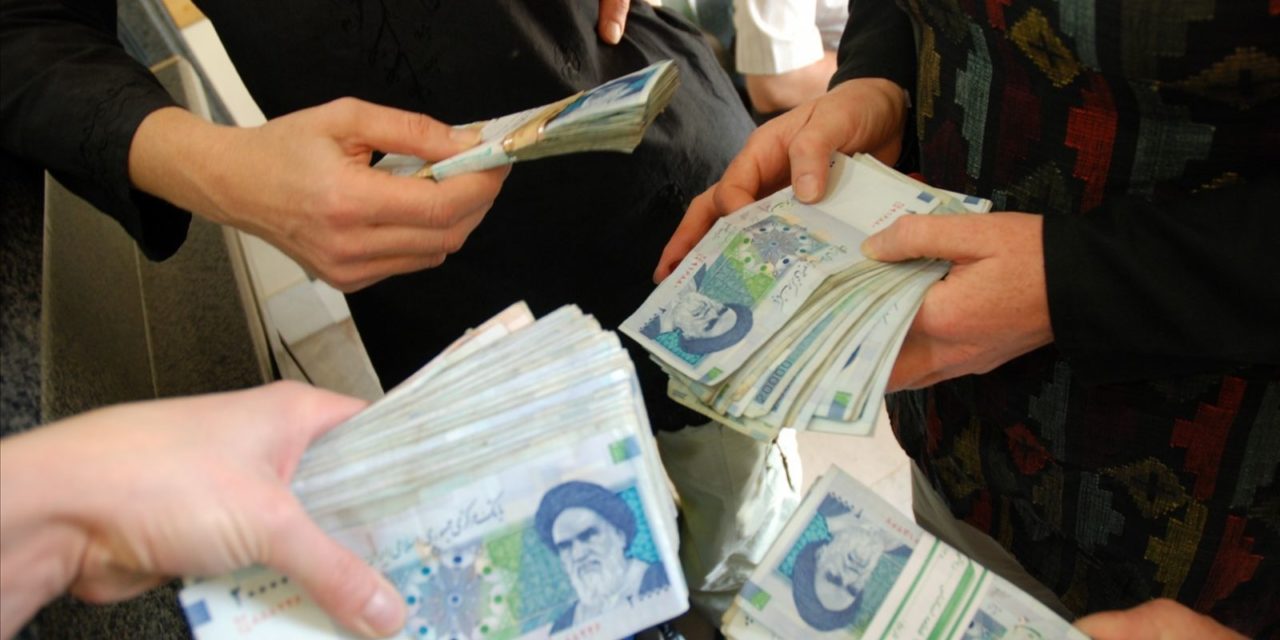LATEST: Rouhani: “We Will Not Give In to Nuclear Apartheid”
SUNDAY FEATURE
Is the Supreme Leader in Trouble at Home?
Could this be a sign of trouble for the Rouhani Government’s plan to stabilize Iran’s economy?
Mohammad Baqer Nobakht, the President’s top advisor on economic matters, said Saturday that — in contrast to earlier plans — the Government will give support payments to all Iranians who have registered, according to Fars.
The Government had said that it was essential to limit costs by restricting the payments to only the needy. The announcement was met by responses that wealthy Iranians would find ways around the restriction, continuing to collect the $18 per person per month.
The second phase of subsidy cuts began last month, with increases in gasoline prices up to 75%.
President Rouhani and his advisors have criticized the initial phase of the cuts, launched by President Ahmadinejad in December 2010 as his flagship economic program. They say that costs outstripped revenues by billions of dollars because of mismanagement and inadequate implementation.
The Government is hoping to collect $19.3 billion through the second phase of cuts.
Rouhani: “We Will Not Give In to Nuclear Apartheid”
Two days ahead of the resumption of high-level talks with the 5+1 Powers, President Rouhani has told a Tehran audience that Iran “will not give in to nuclear apartheid”.
Speaking at the unveiling of three new types of nuclear medicine, Rouhani said Iran’s nuclear energy program is peaceful and within the framework of the Non-Proliferation Treaty:
(The) claim that Iran has had secret activities is a blatant lie. If we wanted to be secretive, we wouldn’t attempt to purchase centrifuges at global markets. Neither would we negotiate with international companies during the process of fuel production and uranium enrichment.
The President defended his approach of engagement — a firm line but a willingness to negotiate — while calling for better presentation of Iran’s case for uranium enrichment:
Our effort today is to even out our efforts on multiple levels. We don’t want to retreat one step from our pursuit of technology, but we want to take a step forward on the political front….
If one engages in a technological endeavor but is not doing good legal and political work, then the enemy might come up with a fictional excuse to cause trouble for you….
If you don’t have good public relations and are not able to communicate well, then you might find other evil-minded people misleading world public opinion.
He asserted, “We wanted to tell the world that our activities are moving in the right direction: If we say we can enrich (uranium) to 3.5%, we can do it. If necessary, we will do 20%.”
Iran suspended enrichment of 20% uranium in November’s Joint Plan of Action agreed with the 5+1 Powers, and it converted much of its existing stock to oxide power or diluted it to 5%.
However, Tehran is insisting on its right to enrich in any final agreement with the 5+1 Powers.
Food Cargoes to Iran Still Disrupted Amid Sanctions
Reuters reports that payment problems are disrupting commercial food cargoes to Iran, with hundreds of thousands of tons of grain and sugar stuck in transit, despite the prospect of eased Western sanctions with a comprehensive nuclear deal.
Iran is not barred from buying food or other humanitarian goods under the sanctions, but banking and financial restrictions have impeded trade since 2012.
“International trade sources” said ships carrying cargoes of sugar and grain, including wheat and soybeans have been stuck for several weeks outside Iranian cargo ports such as Bandar Imam Khomeini and Bandar Abbas.
Sources cited difficulties opening letters of credit, vital to ensuring smooth delivery of goods. “Western banks are unwilling to get involved,” a European trade source said. “As soon as the banks see the word ‘Iran’ in the paperwork, you get it rejected.”
“We still cannot open letters of credit,” an Iranian government official admitted:
International banks are concerned about — or let’s say afraid of — doing business with Iran.
And we don’t know what the solution will be. Dozens of ships are waiting at the ports and we just can’t do anything.
Five vessels, each capable of carrying 60,000 to 70,000 metric tons of grain, reached Iran in early April from ports in Europe, Australia and South America; however, they were still around Bandar Imam Khomeini and Bandar Abbas on May 9, apparently unable to discharge cargo.
The five cargoes are nearly 2% of Iran’s estimated annual wheat consumption of around 17 million metric tons.
Four large vessels from Australia were were stuck, mainly around Bandar Imam Khomeini, from February to April. Three smaller vessels, including one carrying raw sugar, were also held up for weeks.
At least one or two cargoes were re-routed to other buyers.

